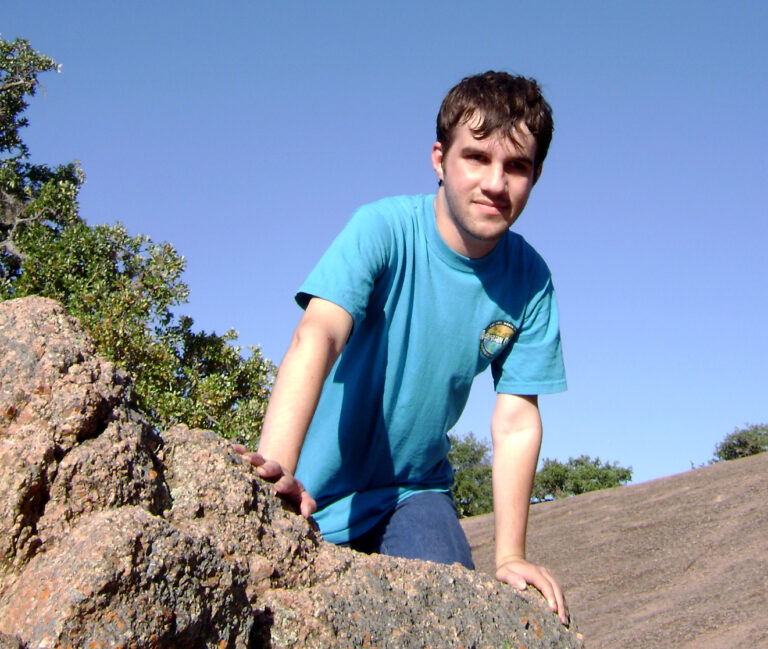Attention Deficit Disorder: “Sunny”
You are my sunshine
My only sunshine
You make my happy
When skies are gray
You’ll never know dear
How much I love you.
Please don’t take
My sunshine away
How many nights I sang that song to a croupy, wheezing, fussy Sunny. Her arms would fly out, her feet would push off.
“Sunny, Sunny, shh, baby.”
Colds, allergies, ear infections, tonsillitis made her miserable. But Sunny was a bright “Little Bunny” and we kept her going and helped her grow. We were in Pittsburgh at this time, while my husband was working on a PhD, at Carnegie-Mellon University in Design Engineering. I had a BA from the University of Pittsburgh. My work experience, before Sunny, was running Horizon Home, one of the first group homes for severely brain injured children, ages 3-14. The selection process for Horizon Home was difficult because I had to go to various institutions in Pennsylvania and find children with IQ’s under 30. That meant I worked with all types of physical and developmental problems. For each child I would have to analyze their development, plan a treatment to improve their function and get them to the next level. It was all new territory for a state maintained facility and a young staff. But through thirty children and three years, I acquired love, respect and experience that serves me even today.
So, when I got that phone call from Sunny’s school counselor in first grade, “Mrs. Faulhaber, we don’t want to upset you before the Christmas holiday, but Sunny has a problem…” I was already plenty upset. Sunny wasn’t reading, her information was here today, gone tomorrow, she didn’t see the spacing between the words, her balance and coordination were off, and it seemed like she didn’t want to run and jump. The teacher was yelling at her and the kids in the class ostracized her. Her allergies were getting even worse since our move to Florida. Sunny was clearly losing ground despite my best efforts.
During the meeting at the school, my husband and I were told that Sunny had severe learning disabilities, a combination of attention deficit disorder and dyslexia, and she would not learn to read. We could expect her to get some vocational job. Although I didn’t say it, “Over my dead body!” rang in my head. If I could improve the function of the children at Horizon Home, I could do it for Sunny. Just how I had to find out.
What did St. Petersburg, or Florida or the nation, have for children with learning disabilities? It was not quite noon that same day and I was on the phone. The answers were coming up Compensate, Cope and Limit. I tried my sister Sal. Her daughter had been brain injured from a DPT shot and they were doing a program out of Philadelphia for her. I knew that program would not be appropriate, but what did Sal know about Robert Doman and The National Association for Child Development (NACD) that I had seen on a TV interview. My sister gave me the name of a contact mom in Florida who talked to me for three hours.
This, I thought, had a chance of working, but there was no center yet in Florida. So, we got our first evaluation and program three weeks later in Redlands, California. Sunny had a younger brother, a baby sister, I had pneumonia and my husband traveled a lot. I could accomplish a one hour program each day. NACD said that would work.
Back home we did our activities to improve her eye convergence, hearing, balance and coordination, lung capacity, short- and long-term memory, reading and math. Her school environment wasn’t good, so I called a public elementary school featured in the St. Petersburg Times. The principal was receptive and we talked for a total of five hours over the next few months. Later, when I asked her why had she given so much of her time when my child wasn’t in her school, she said, “I never heard a mother like you before.” She did in fact respect my views and nominated me to our county school board committee, selecting the elementary, spelling, writing and reading series for a school system with 100,000 students. I served two years.
Sunny ended up failing first grade, more because it was the school fulfilling their prophecy than Sunny’s problems warranted. So I went back to the public school principal and said, “If Sunny can pass the tests in August, she can start second grade.” Sunny passed AND the psychologist didn’t find the learning disabilities.
Second grade taught her reading and built confidence. Her teacher strongly supported my efforts by doing some of her program activities at school. And during announcements, the principal would call Sunny’s name along with other good students. Then, she’d be presented individually with a listing of her accomplishments and a gold pencil, a small mirror or comb something little that Sunny thought was wonderful.
By third grade she was on the Honor Roll. In fifth grade she won third place in the County Science Fair for a waterway lock, the Presidential Academic Fitness Award and the Pride Award in Social Studies. This award was given at Ruth Eckerd Hall, a very large concert hall in our area, to the best, eighth and twelfth grade students in Creative Writing, Science, Math, or Social Studies by the Superintendent of Schools and the School Board. As the awards were presented, I couldn’t just sit there. I had to see her face. So I worked my way slowly down the left outside aisle to get a good look. Sunny was bright and beaming, just a little self-conscious. I could hardly see that much through erupting tears. Oh, I had been frightened for her. But now, much relieved.
Winning in the Social Studies category was no surprise. My husband traveled for business and sometimes we went. But many more times when he left, my children and I left in our own directions. To date, we have been all over Europe including the Scandinavian countries and Russia, the United States, including Alaska, twice to Central America, the Bahamas, Hong Kong and China, seeing art museums, historic and scientific sites, experiencing new foods and cultures.
However, Sunny found her forte when in ninth grade she entered the Pinellas County Center for the Arts (PCCA) at Gibbs High School. PCCA is a magnet school with visual art, literary, performance, technical and musical theater, instrumental music, vocal training, or dance. For three periods a day the students take classes in their art. For four periods, they are enrolled in college prep classes. Sunny learned visual art, drawing, 2D and 3D design, all types of print making, metal and plaster sculpture, photography, watercolor, ink washes, acrylic and oil painting, large installations and art history. In class, she took math to trigonometry and analytic geometry, AP history, AP English and honors chemistry. Sunny teaches art history in her AP European history class, three times a month. Her English teacher loves her, and her chemistry teacher recently questioned her, “Why aren’t you taking more math? You are so smart in chemistry.” Last year, as an apprentice to the Renaissance Festival, she made costumes and acted. With four friends, they produced a haunted house, “Foreboden,” which they designed, then coordinated the volunteer efforts of many children and the monetary contributions of area businesses to benefit Girls Clubs in our county.
But last Sunday was truly spectacular. Sunny collected and we organized all her best art work for National Portfolio Day at the Ringling School of Design. All the best art schools and universities meet to critique the areas of art work. Sunny’s art work was accepted to her first choice, the School of the Art Institute of Chicago. They further nominated her for a merit scholarship with benefits of 10%, 20% or 40% for all four years. The Rhode Island School of Design spent 45 minutes talking to her about the depth and breadth of her work. “Do you know how many applicants we get who can do all this and costume design and make haunted houses, too? Not many. We want you, too.” But when Carnegie Mellon University, her dad’s alma mater, started saying good things, and “tell me about this piece,” Sunny responded with what the representative called, “the best of the right answers. You’re good, Sunny. You and Carnegie-Mellon are a seamless match. You have an excellent creative attitude and we are going to highly, highly recommend you. Please apply.” Sunny beamed. When Sunny told her dad, he said, “I’m so proud of you, and they never begged me to come.” She laughed, “Dad, that’s because I’m better than you at what I do best…”
But really, isn’t that what we want. We would like to provide the opportunities that cause our children to exceed us in what they love to do.
You are my sunshine
My only sunshine
You make my happy
When skies are gray.
You’ll never know dear
How much I love you…
Thank you to Robert Doman and The National Association for Child Development (NACD) for first providing the expertise to eliminate Sunny’s learning problems, but also the continued benefit of that association for my son, younger daughter and myself. I more clearly see how to improve function and help families than I could have ever thought possible in my early days in Pittsburgh.
Thanks again and thanks forever.



